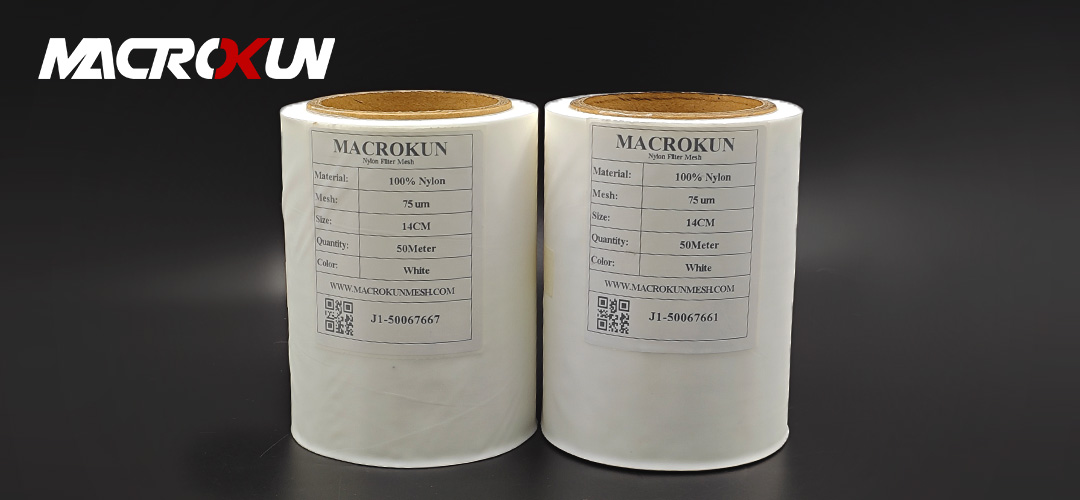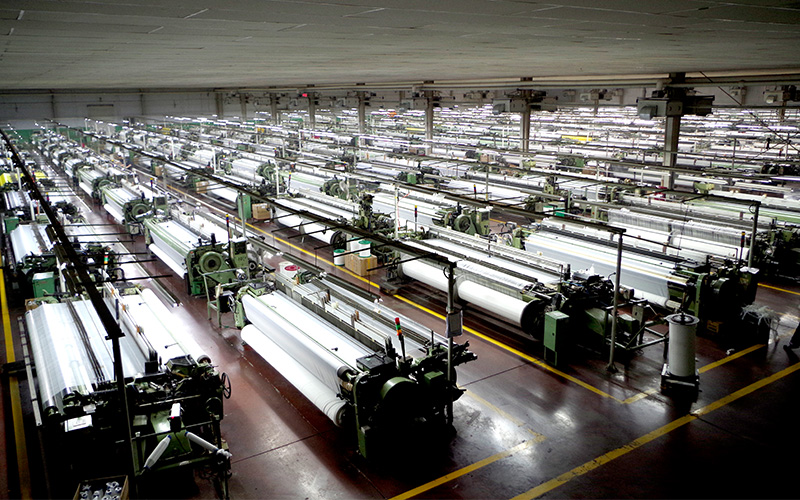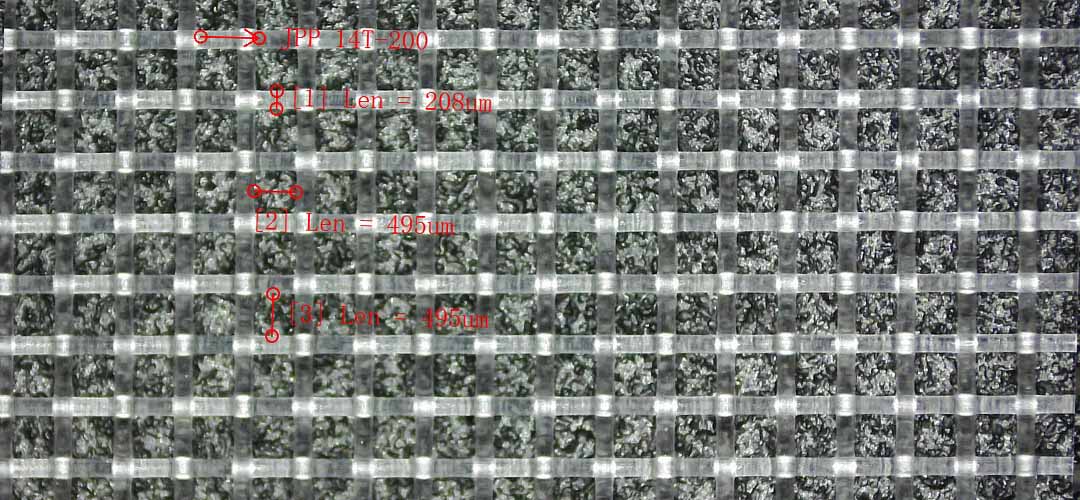Nylon Filter Mesh Kinds: Choosing the Right Mesh for Your Needs
Benefits of Using Nylon Filter Mesh in Various Industries
Nylon filter mesh is a versatile and widely used material in various industries due to its numerous benefits. From food processing to pharmaceuticals, nylon filter mesh offers exceptional filtration capabilities, durability, and cost-effectiveness. In this article, we will explore the benefits of using nylon filter mesh in different industries and how to choose the right mesh for your specific needs.
One of the primary advantages of nylon filter mesh is its excellent filtration capabilities. The mesh is designed to trap and remove impurities, particles, and contaminants from liquids and gases. This makes it an ideal choice for industries that require precise filtration, such as the food and beverage industry. Nylon filter mesh can effectively remove unwanted particles, ensuring the quality and purity of the final product.
Another benefit of nylon filter mesh is its durability. The material is known for its strength and resistance to wear and tear. This makes it suitable for industries that require continuous and long-term use, such as the chemical and pharmaceutical industries. Nylon filter mesh can withstand harsh chemicals and high temperatures without losing its filtration efficiency, making it a reliable choice for demanding applications.
Cost-effectiveness is yet another advantage of using nylon filter mesh. Compared to other filtration materials, nylon filter mesh is relatively affordable, making it a cost-effective solution for businesses. Additionally, its durability ensures a longer lifespan, reducing the need for frequent replacements and maintenance. This not only saves money but also minimizes downtime, allowing businesses to operate smoothly and efficiently.
In the food processing industry, nylon filter mesh is widely used for various applications. It is commonly used in the production of beverages, dairy products, and edible oils. The mesh effectively removes impurities, ensuring the safety and quality of the final products. Additionally, nylon filter mesh is easy to clean and maintain, making it a practical choice for food processing facilities.
The pharmaceutical industry also benefits greatly from the use of nylon filter mesh. The mesh is used in the production of medications, where precise filtration is crucial to remove any impurities or contaminants. Nylon filter mesh provides the necessary level of filtration while maintaining the integrity of the pharmaceutical products. Its durability and resistance to chemicals make it an ideal choice for pharmaceutical applications.
Other industries that benefit from nylon filter mesh include the automotive, electronics, and water treatment industries. In the automotive industry, nylon filter mesh is used in oil and fuel filters to ensure the smooth operation of engines. In the electronics industry, the mesh is used in air filters to prevent dust and particles from damaging sensitive electronic components. In the water treatment industry, nylon filter mesh is used in filtration systems to remove impurities and improve water quality.
When choosing the right nylon filter mesh for your specific needs, several factors should be considered. These include the desired filtration level, mesh size, and compatibility with the operating conditions. It is essential to determine the particle size you need to filter and select a mesh with the appropriate micron rating. Additionally, consider the temperature, pressure, and chemical compatibility requirements to ensure the mesh can withstand the operating conditions.
In conclusion, nylon filter mesh offers numerous benefits in various industries. Its exceptional filtration capabilities, durability, and cost-effectiveness make it a popular choice for applications ranging from food processing to pharmaceuticals. By understanding the specific needs of your industry and considering factors such as filtration level, mesh size, and compatibility, you can choose the right nylon filter mesh to optimize your filtration processes and achieve the desired results.
Nylon filter mesh is a versatile material that is commonly used in a variety of industries for filtration purposes. It is known for its durability, flexibility, and resistance to chemicals and abrasion. There are different types of nylon filter mesh available, each with its own unique characteristics and applications. Choosing the right mesh for your specific needs is crucial to ensure optimal filtration performance.
One of the most common types of nylon filter mesh is monofilament mesh. This type of mesh is made from a single strand of nylon, which results in a smooth surface that is ideal for fine filtration applications. Monofilament mesh is known for its high flow rates and excellent particle retention capabilities. It is commonly used in industries such as food and beverage, pharmaceuticals, and water treatment.
Another type of nylon filter mesh is multifilament mesh. This type of mesh is made from multiple strands of nylon twisted together, which creates a more porous surface compared to monofilament mesh. Multifilament mesh is ideal for applications that require high dirt-holding capacity and good flow rates. It is commonly used in industries such as automotive, chemical processing, and oil and gas.

In addition to monofilament and multifilament mesh, there are also specialty nylon filter meshes available, such as conductive mesh and antistatic mesh. Conductive mesh is designed to dissipate static electricity, making it ideal for applications where static buildup is a concern. Antistatic mesh, on the other hand, is treated with an antistatic agent to prevent the accumulation of static electricity. These specialty meshes are commonly used in industries such as electronics, aerospace, and cleanroom environments.

When choosing the right nylon filter mesh for your needs, it is important to consider factors such as mesh size, pore size, and filtration efficiency. Mesh size refers to the number of openings per linear inch, with higher mesh sizes indicating finer filtration capabilities. Pore size refers to the size of the openings in the mesh, with smaller pore sizes providing better particle retention. Filtration efficiency refers to the mesh‘s ability to remove contaminants from a fluid stream.
It is also important to consider the operating conditions of your filtration system, such as temperature, pressure, and chemical compatibility. Nylon filter mesh is known for its resistance to a wide range of chemicals, but it is important to ensure that the mesh is compatible with the specific chemicals present in your application. Additionally, nylon filter mesh can withstand temperatures up to 250°F, making it suitable for high-temperature applications.

In conclusion, choosing the right nylon filter mesh for your needs is essential to ensure optimal filtration performance. By considering factors such as mesh type, size, and operating conditions, you can select a mesh that meets your specific requirements. Whether you need fine filtration capabilities, high dirt-holding capacity, or antistatic properties, there is a nylon filter mesh available to suit your needs. Invest in quality nylon filter mesh to improve the efficiency and effectiveness of your filtration system.
When it comes to selecting the right nylon filter mesh for your specific needs, there are several factors to consider. Nylon filter mesh is a versatile material that is commonly used in a variety of industries, including food and beverage, pharmaceutical, and chemical processing. The mesh is made from nylon, a synthetic polymer that is known for its strength, durability, and resistance to chemicals and abrasion.
One of the most important factors to consider when selecting a nylon filter mesh is the mesh size. Mesh size refers to the number of openings per inch in the mesh. The smaller the mesh size, the finer the filtration will be. For example, a mesh size of 100 means there are 100 openings per inch, while a mesh size of 200 means there are 200 openings per inch. The mesh size you choose will depend on the size of the particles you need to filter out.
Another important factor to consider is the mesh weave. Nylon filter mesh is available in a variety of weave patterns, including plain weave, twill weave, and Dutch weave. Each weave pattern has its own unique characteristics and is suitable for different applications. For example, plain weave mesh is the most common and is suitable for general filtration applications, while Dutch weave mesh is ideal for applications that require a high level of filtration precision.
In addition to mesh size and weave pattern, it is also important to consider the micron rating of the nylon filter mesh. The micron rating refers to the size of the particles that the mesh can filter out. A lower micron rating indicates a finer filtration capability. For example, a mesh with a micron rating of 50 can filter out particles that are 50 microns or larger in size. The micron rating you choose will depend on the level of filtration precision you require for your specific application.
It is also important to consider the temperature and chemical compatibility of the nylon filter mesh. Nylon filter mesh is resistant to a wide range of chemicals and can withstand temperatures up to 250 degrees Fahrenheit. However, it is important to ensure that the mesh is compatible with the specific chemicals and temperatures present in your application to prevent damage or degradation of the mesh.
When selecting a nylon filter mesh, it is also important to consider the flow rate. The flow rate refers to the amount of liquid that can pass through the mesh in a given amount of time. A higher flow rate is desirable for applications that require fast filtration, while a lower flow rate may be suitable for applications that require more precise filtration.
In conclusion, selecting the right nylon filter mesh for your specific needs requires careful consideration of factors such as mesh size, weave pattern, micron rating, temperature and chemical compatibility, and flow rate. By taking these factors into account, you can ensure that you choose a nylon filter mesh that is well-suited to your application and provides the level of filtration precision you require.
Pre: High-Quality Filtration with 100 Micron Nylon Filter Cloth
Next: 300 Micron Nylon Mesh: Perfect for Industrial Filtration Demands

MACROKUN has established long-term and stable cooperative relations with many transportation companies such as China Post, DHL, FEDEX, USPS, UPS, etc. Of course, MACROKUN can also provide air and sea transportation. The powerful logistics system enables all MACROKUN'S Printing Mesh, Filter Mesh and Filter Bags and so on to be easily and efficiently transported to any place. For quotes and inquiries, please email our sales team.





